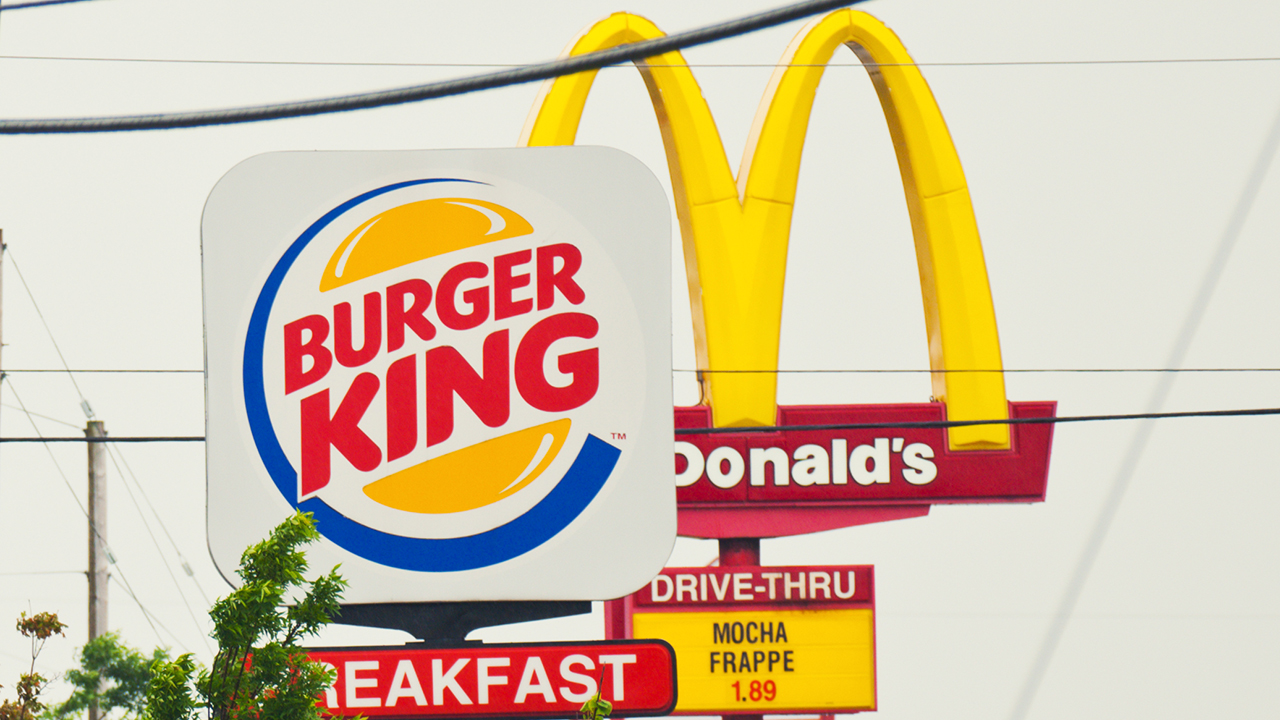Restaurant groups push to overturn California fast-food wage law
Opponents said they have submitted signatures for a referendum, setting up statewide fight
New California law could raid fast food min. wage to $22 an hour
Chef and restaurant owner Andrew Gruel discusses Gov. Newsom signing a landmark fast food workers bill despite concern it will drive up consumer costs on ‘Fox Business Tonight.’
Restaurant and trade groups said they have submitted enough voter signatures for a ballot measure to try to halt the implementation of a new California law that would set minimum hourly wages for fast-food workers in the state starting next year.
A coalition of restaurant owners and business groups called Save Local Restaurants said Monday it had filed more than 1 million petition signatures to put the law on hold and place an initiative before California voters on the 2024 ballot. They had until Dec. 5 to submit roughly 623,000 valid voter signatures to place a question on the 2024 ballot asking whether the law should take effect. If voters side against the law, it could be struck down.
The secretary of state must review the restaurant groups’ ballot signatures to determine whether the coalition has submitted enough valid ones for a statewide referendum.
The California law, known as the FAST Recovery Act, could set the minimum wage for the fast-food industry as high as $22 an hour next year and establish new workplace standards. Gov. Gavin Newsom signed the legislation last September, saying it would give fast-food workers a stronger voice in determining their wages and working environments.

Fast-food workers drive though a McDonald's restaurant demanding a $15 hourly minimum wage in East Los Angeles, Friday, March 12, 2021. (AP Photo/Damian Dovarganes) (AP Photo/Damian Dovarganes, File / AP Newsroom)
INFLATION TRIGGERS CALIFORNIA MINIMUM WAGE INCREASE IN 2023
Fast-food operators have said that state health and labor agencies currently regulate their businesses, and owners would need to lay off staff and increase menu prices to afford the wage increases.
The International Franchise Association, the National Restaurant Association and the U.S. Chamber of Commerce, Washington, D.C.-based industry groups that are co-chairing the coalition, said that the law would create an unelected council controlling state labor policy, and that they were committed to repealing it.

Starting wages are advertised on a sign in the window of a Taco Bell in Sacramento, Calif., Monday, May 9, 2022. (AP Photo/Rich Pedroncelli) ((AP Photo/Rich Pedroncelli))
The law has been set to take effect Jan. 1. However, if the state validates the referendum sought by the restaurant groups, implementation of the law will be put on hold for nearly two years during the referendum process, a victory for restaurants that have said the rapid pay increase would upend their businesses.
Service Employees International Union, which has backed the new law as a way to improve wages in an industry that unions have struggled to organize, said fast-food companies were trying to stamp out gains made by state workers.
"Workers cannot wait until 2024 for the protections they need and a seat at the table," said Mary Kay Henry, SEIU president.
The law, a first of its kind in the U.S., has become a big battle between the restaurant industry and union supporters. Restaurants operators fear proponents could replicate the California law in other states, particularly where Democrats lead state governments. A number of states will have incoming Democratic governors and legislatures after the Midterm elections, upping the ante for both sides.
Scott Galloway measures whether raising national minimum wage 'is worth it'
NYU Stern School of Business professor and 'Adrift: America in 100 Charts' author Scott Galloway examines the U.S. economic future in his new book.
The National Restaurant Association is particularly worried about similar labor councils being proposed in Washington, Oregon, New York and Michigan, along with cities such as Minneapolis and Chicago, the trade group said at a franchising conference last month.
The law calls for California to create a 10-person council including workers, union representatives, employers and business advocates that could set a minimum wage for fast-food workers that would rise annually based on inflation. California’s current minimum wage is $15 an hour and is scheduled to increase by 50 cents next year.
CITIES WITH THE HIGHEST, LOWEST REAL MINIMUM WAGE: REPORT
California’s law also prohibits fast-food operators from retaliating against employees who make complaints, and sets the framework for the reinstatement of back wages or employment for those who do. The law would apply to fast-food restaurants with more than 100 locations nationwide.
Supporters have said the legislation would create a model to ensure fair wages and other protections for hourly workers in a large industry with many different employers. Around 500,000 people work in the fast-food industry in California.

Pedestrians walk below an In-N-Out Burger restaurant sign in San Francisco, Thursday, Aug. 25, 2022. (AP Photo/Jeff Chiu) ((AP Photo/Jeff Chiu) / AP Newsroom)
The SEIU last month filed a complaint with state officials alleging the coalition violated state election rules in how it collected signatures for the referendum. A coalition spokeswoman said that it was maintaining compliance with California’s election laws in collecting signatures, and that the complaint was frivolous.
The California attorney general’s office said it had received the complaint and it wasn’t able to comment further on a potential or continuing investigation.
Restaurant chains and their franchisees have given millions of dollars in support of the referendum effort. The industry coalition had raised around $21 million from more than 200 contributors, according to state filings.
CLICK HERE TO GET THE FOX BUSINESS APP
The coalition will now need to persuade voters statewide to overturn the law, a tricky prospect, said Riley Lagesen, head of the restaurant practice at law firm Greenberg Traurig, LLP. Opponents have to demonstrate that the law’s prospective wage increases could hurt consumers and industries beyond restaurants, and that repealing it wouldn’t hurt workers, Mr. Lagesen said.
Christine Mai-Duc contributed to this article.





















